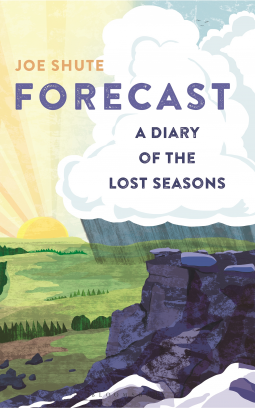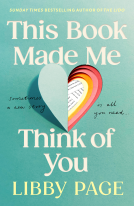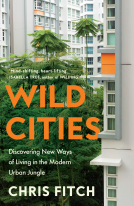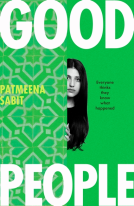
Forecast
A Diary of the Lost Seasons
by Joe Shute
This title was previously available on NetGalley and is now archived.
Send NetGalley books directly to your Kindle or Kindle app
1
To read on a Kindle or Kindle app, please add kindle@netgalley.com as an approved email address to receive files in your Amazon account. Click here for step-by-step instructions.
2
Also find your Kindle email address within your Amazon account, and enter it here.
Pub Date 24 Jun 2021 | Archive Date 22 Jul 2021
Bloomsbury Publishing Plc (UK & ANZ) | Bloomsbury Wildlife
Talking about this book? Use #Forecast #NetGalley. More hashtag tips!
Description
Joe Shute has traveled all over Britain discovering how our seasons are changing, causing havoc with nature and affecting our lives.
The changing seasons have shaped all of our lives, but what happens when the weather changes beyond recognition?
Joe Shute has spent years unpicking Britain's long-standing love affair with the weather. He has pored over the literature, art and music our weather systems have inspired and trawled through centuries of established folklore to discover the curious customs and rituals we have created in response to the seasons. But in recent years Shute has discovered a curious thing: the British seasons are changing far faster and far more profoundly than we realise. Daffodils in December, frogspawn in November and summers so hot wildfires rampage across the northern moors.
Shute has travelled all over Britain discovering how our seasons are warping, causing havoc with nature and affecting all our lives. He has trudged through the severe devastation caused by increasingly frequent flooding and visited the Northamptonshire village once dependent on hard frosts for its slate quarrying industry now forced to invest in industrial freezers due to our ever-warming winters. Even the very language we use to describe the weather, he has discovered, is changing in the modern age.
This book aims to bridge the void between our cultural expectation of the seasons and what they are actually doing. To follow the march of the seasons up and down the country and document how their changing patterns affect the natural world and all of our lives. And to discover what happens to centuries of folklore, identity and memory when the very thing they subsist on is changing for good.
Available Editions
| EDITION | Hardcover |
| ISBN | 9781472976741 |
| PRICE | £16.99 (GBP) |
| PAGES | 288 |
Links
Average rating from 6 members
Featured Reviews
 Educator 676205
Educator 676205
"The great meteorological shifts of a rapidly changing climate are influencing the seasons as we understand and relate to them. How the weather, our weather, by which as an island nation we somehow define ourselves, is morphing into something beyond the reach of our cultural memory...Our connection to the seasons, and in the process a deeply rooted sense of self and place, is slowly being lost....our weather is becoming duller, greyer, warmer and wetter, and with far less of the pronounced scene changes one typically associates with the four seasons."
I was not expecting to find this book as fascinating as I did. I've not yet been drawn into the boom of British nature/weather writing in the last few years but I thought this would be a good place to begin, and what a superb choice it is. Written by the Telegraph's Saturday Weather correspondent (a confession, I've been reading the Telegraph for years and have never noticed this), it tackles the increasing challenge of the changing climate of the UK, and what this means of our shared history and understanding of nature.
What does it mean for us and those who come after, that in living memory, even in the recent decades, the old rules and assumptions for weather in the UK no longer hold? (Views on climate change aside, I'm sure that we will all be familiar with the noticeably wetter and warmer weather in the recent decades, to say nothing of the spate of flooding.) The book marks extremes, such as 2020 having the sunniest March and April and May since records began. Written during the pandemic, this book is about what life looks like in the UK when old assumptions are cast aside and what this might mean for the future.
This book is not one of catastrophe, nor is it entirely doom-laden, but instead is a fascinating tour of the British Isles (with forays beyond), asking us to wonder what happens when we can no longer predict the future on patterns of the past. The changing of bird migration, spring arriving more quickly, autumn lasting longer, heatwaves unknown in former decades, rainfall increasing, the arrival of 'tropical nights' where the temperature doesn't drop below 20, and that weather conditions in England are now allowing for better wine to be produced. Warm winters mean that plants survive the cold but do not thrive in spring. The adder population has collapsed. Wildfires are increasing.
It was also full of little bits of history, such as the prevalence for richer homes to be built in the west and south in former centuries, so that the smoke and soot would be blown elsewhere, that wildfires have increased particularly since the move from pipe smoking to cigarette smoking, and that some in the late 19th century also proposed that the growth of industry was already having an effect on the climate.
Furthermore, there is a minor chord running through the text of the struggle of the author and his wife to conceive. Infertility is rarely written about from a male perspective, and whilst it was immensely personal, it had profound resonance for the text. How does one to look to the future when the expected milestones are no longer there, in both his life and in the natural world?
I heartily recommend this book, which was unexpectedly fascinating and, at times, very moving.
 Educator 388984
Educator 388984
The book starts with a quote by Professor Chris Whitty - now a very familiar figure -, "The seasons are against us". It then goes into an exploration of seasons in Britain, starting with spring, and moving on through the different seasons - examining the current state of affairs, and our "cultural expectations" - the fact we have an idea in our heads of what these seasons look like but that reality is more and more different from that idyllic, children's book ideas of seasons.
Written during the pandemic, this book doesn't dwell on it too much but uses it as a background - many people have spent the lockdown noticing nature... a bit more than before, because there was nothing else to do. - as Joe Shute puts it, "So many of the seasons which normally dictate our year were, in a matter of days, rendered meaningless. The football season, the fashion season..." When the lockdown started, "people spoke of the scales falling from their eyes and wondered if the birds always sang this loud, or had we just started listening to them?"
Joe Shute refers to the past a lot, but also uses many current testimonies, meeting people who work closely in and with nature. There is a sense that nature and the weather as we know it is different, and that it is changing so rapidly that it keeps surprising us - but the dramatic "hottest day of the year" (to be outdone the very next day) are increasingly becoming the norm. At the moment, it is still "an unfamiliar weatherscape"; but within a few decades, it is unlikely London will see any snow most years - with spring and autumn being longer, and summer and winter shortening. He describes in details the new patterns of birds and plants - birds coming back from their migration much earlier, leaving later, and plants surviving winter when they didn't use it. I spent many days in my garden this winter admiring my neighbours' rose tree - which had beautiful white flowers in December, that finally withered some time in February. He dives into the science behind these little things we notice but don't think of - puts it into perspective: we might have to start mowing our lawns through winter, something which culturally is... different and odd to us.
Despite the many harrowing facts, it didn't feel like a depressing read - it made me feel like going to the park and enjoying all these things while I can... It was beautifully written, an artful mix of personal stories, meeting with experts, science, history and literature, and nostalgia. I really enjoyed it and would certainly recommend it.
Readers who liked this book also liked:
Rick Riordan; Mark Oshiro
Children's Fiction, LGBTQIA, Teens & YA


















